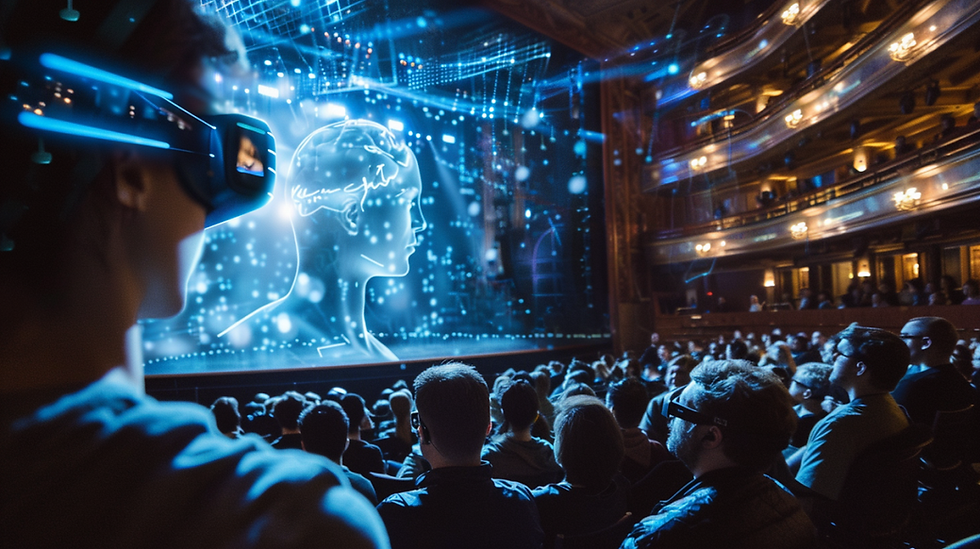How is AI reshaping educational theater?
- Yuvan Sampath
- Aug 29, 2025
- 2 min read
Updated: Sep 13, 2025

To me, theater has always been a vibrant space for creativity, collaboration, and self-expression in school. From breaking down plays from the Golden Age to performing student-written plays, the stage offers a place for young minds to explore emotions, hone their craft, and connect with an audience. But as artificial intelligence(AI) continues to proliferate every facet of our lives, it's also making its way to school theater programs. Let’s explore how AI is transforming theater in schools and what it means for students, directors, and the future of educational theater.
One obvious way AI can be used in theater is to function as a playwright. AI-powered writing assistants such as ChatGPT can generate dialogues, plot ideas, and even full scripts based on simple prompts. For example, I could ask ChatGPT to “write a 10-minute play about a murder mystery for 5 actors,” and receive a draft in seconds. However, from my experience, AI written scripts lack soul and purpose. The jokes they come up with are quite lackluster, and it is quite obvious what is AI and what is not. Overreliance on AI generated scripts can also dilute the education of students, as they are not exposed to a variety of real playwright’s works.
However, AI can prove to be a very effective tool for the technical side of school theater. Tools like AI-driven design programs such as MidJourney or DALL-E can help students create concept art for costumes, sets, and lighting designs. Also, AI powered tools can help optimize stage layouts and provide a nice picture of what the finished product may look like, making it easier to visualize productions before spending resources on physical sets. This would prove to be even more effective for underfunded theater programs, as they would be able to budget better based on what they need.
Another unique idea for using AI in acting is for accent work. Talking to AI powered virtual characters with different accents can help young actors fine tune their dialects. I, for one, would have loved to have somebody to talk to in a Cockney accent while preparing for Matilda. This new technology can provide just that for the future of educational theater.
As AI continues to evolve, its role in school theater will likely expand as well. It is important to harness AI as a tool rather than a replacement for original work, and to preserve the authenticity and emotional depth that make theater special. As the curtain rises on this new era, schools have the chance to redefine theater education, preparing students not only to perform but to shape the future of the arts in a tech-driven world.



Very well written Yuvan, keep it flowing 👏